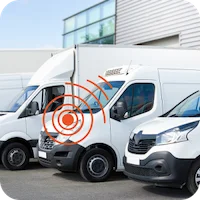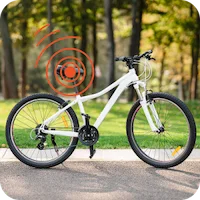HMRC and the Taxman – Are Your Mileage Claims Audit Proof?
Mileage claims save UK businesses and self-employed workers thousands every year. HMRC looks closely at these claims. Poor records mean lost deductions and higher tax bills. Keep your mileage audit proof with detailed, accurate logs.
Why HMRC Mileage Records Matter
HMRC views mileage as a standard expense. They expect proof that each journey happened for genuine business reasons.
Strong records must include:
- Date of travel
- Start and end points
- Miles covered
- Purpose of the trip
- Vehicle registration
- Driver information for shared vehicles
Missing even one detail can make a claim invalid. HMRC expects clarity, not guesswork.
What Happens in an Audit
Audits happen more often than people think. HMRC checks for claims that look too high compared to income or industry averages. They also run random reviews.
In an audit, inspectors request mileage logs. They check them against tax returns and supporting diaries. Receipts come under review as well. Gaps, vague notes or conflicting numbers raise questions fast. If your records hold up, the audit ends quickly. If they don’t, you face penalties.
The Price of Poor Records
Mileage deductions can be worth thousands. A self-employed consultant who drives 15,000 business miles a year can claim £4,500 at the 45p HMRC rate. Lose that deduction and you pay more tax than you need to.
Yet many people rely on rough notes or end-of-month estimates. Diaries get lost. Numbers are rounded up or down. Paper fades. HMRC has rejected countless claims for these reasons. Good records are not optional. They are essential.
Why Digital Logs Outperform Paper
Paper notes can’t match digital accuracy. They take time to fill in, and they invite mistakes. Worse still, they can disappear in a drawer or glove box.
Digital logs, by contrast, record trips in real time. They store data securely. They create reports that accountants and HMRC accept without dispute.
They also save time. A system that records trips automatically frees drivers from constant admin. Hours once spent writing numbers down are gained back.
How the Finder Portal Logbook Works
The Finder Portal logbook by PAJ GPS records every trip automatically. It captures the details HMRC requires and keeps them safe.
Automatic Tracking
Each journey is logged as it happens. Start, end, distance, and time are recorded without effort.
Trip Categories
You can mark journeys as business, commuting, or private. HMRC insists on this split for vehicles with mixed use.
Editing Window
Users can fix entries for seven days. After that, records lock, protecting the audit trail.
Driver and Vehicle Profiles
The system assigns trips to specific vehicles and drivers. Shared cars no longer create confusion.
Ready-to-Use Reports
The logbook produces PDF reports with every HMRC requirement included. These reports are audit ready.
Case Study: Delivery Firm Under Audit
A small courier company once relied on notebooks. HMRC questioned gaps in mileage logs during an audit. Drivers failed to list purposes for some trips. Others lacked start and end points.
The firm moved to the Finder Portal logbook. The next year, they exported professional reports with full details. HMRC accepted all claims with no disputes. The business avoided penalties and saved money on taxes.
Building Audit-Proof Habit
Technology works best with a strong routine. Build habits around the logbook to keep data accurate. These habits ensure your reports stay complete and reliable.
- Register drivers and vehicles before trips start
- Keep the tracker switched on for every journey
- Review logs weekly and correct errors early
- Export reports monthly and store them with tax records
- Keep records for six years, as HMRC requires
Common Pitfalls in Mileage Claims
Most rejected claims fail for predictable reasons:
- Guessing mileage totals instead of recording live data
- Forgetting to note the purpose of trips
- Mixing personal and business miles in one entry
- Losing handwritten notes or deleting spreadsheets
- Missing the seven-day correction window
The Finder Portal logbook removes these risks. It forces trip categories, locks records to prevent tampering, and stores everything securely.
Why Mileage Accuracy Affects More Than Tax
Accurate mileage logs do more than protect deductions. They improve cash flow by giving you every pound you are entitled to. They cut admin hours, saving time for real work. They also give HMRC confidence in your business. Strong evidence reduces the chance of repeat audits.
For fleet managers, accurate logs also help with fuel planning and driver oversight. You see patterns in how vehicles are used and can cut waste.
How Much Is at Stake
Mileage adds up quickly. Just 1,000 unrecorded business miles equals £450 in lost deductions at HMRC’s rate. Over five years, that becomes £2,250. For companies running multiple vehicles, the totals are even higher.
Strong records protect this money. They turn every legitimate trip into a deduction.
Getting Ready for the Taxman
When HMRC comes calling, you want confidence. With the Finder Portal logbook, you can provide:
- Time-stamped journeys
- Clear start and end points
- Miles driven for each trip
- Business and private categories
- Vehicle and driver details
These reports give HMRC what they need without questions or disputes. They turn a stressful process into a simple one.
Final Word
HMRC mileage claims matter. They save money, but only when backed by strong records. Weak notes and vague numbers lead to higher tax bills and penalties.
The Finder Portal logbook by PAJ GPS records every mile, separates private and business trips, and creates professional reports. It takes the stress out of audits and protects your claims.
If you want mileage claims that stand up to HMRC inspection, build your system around digital records. Every trip counts. Make sure every trip works for you, not against you.
















